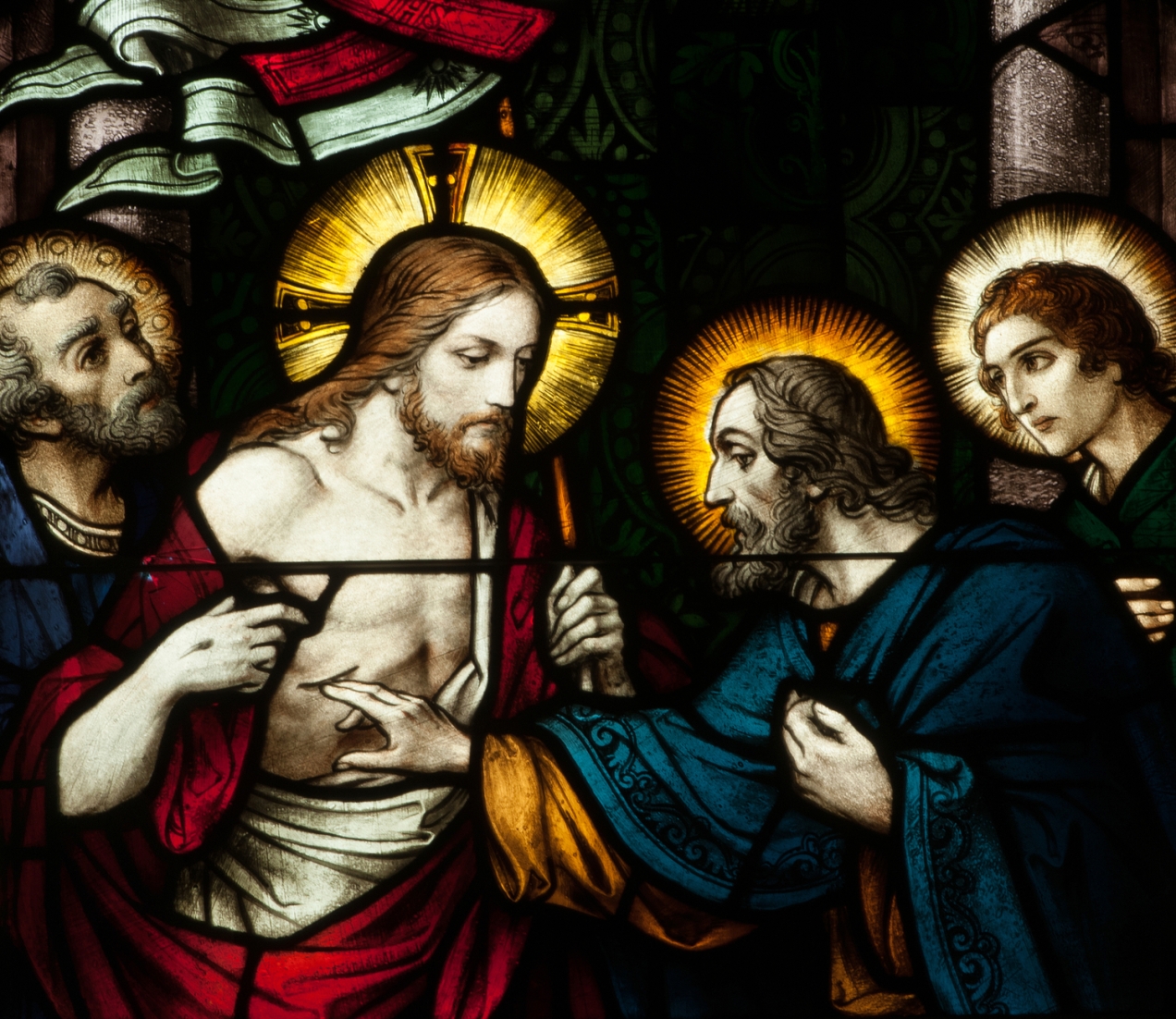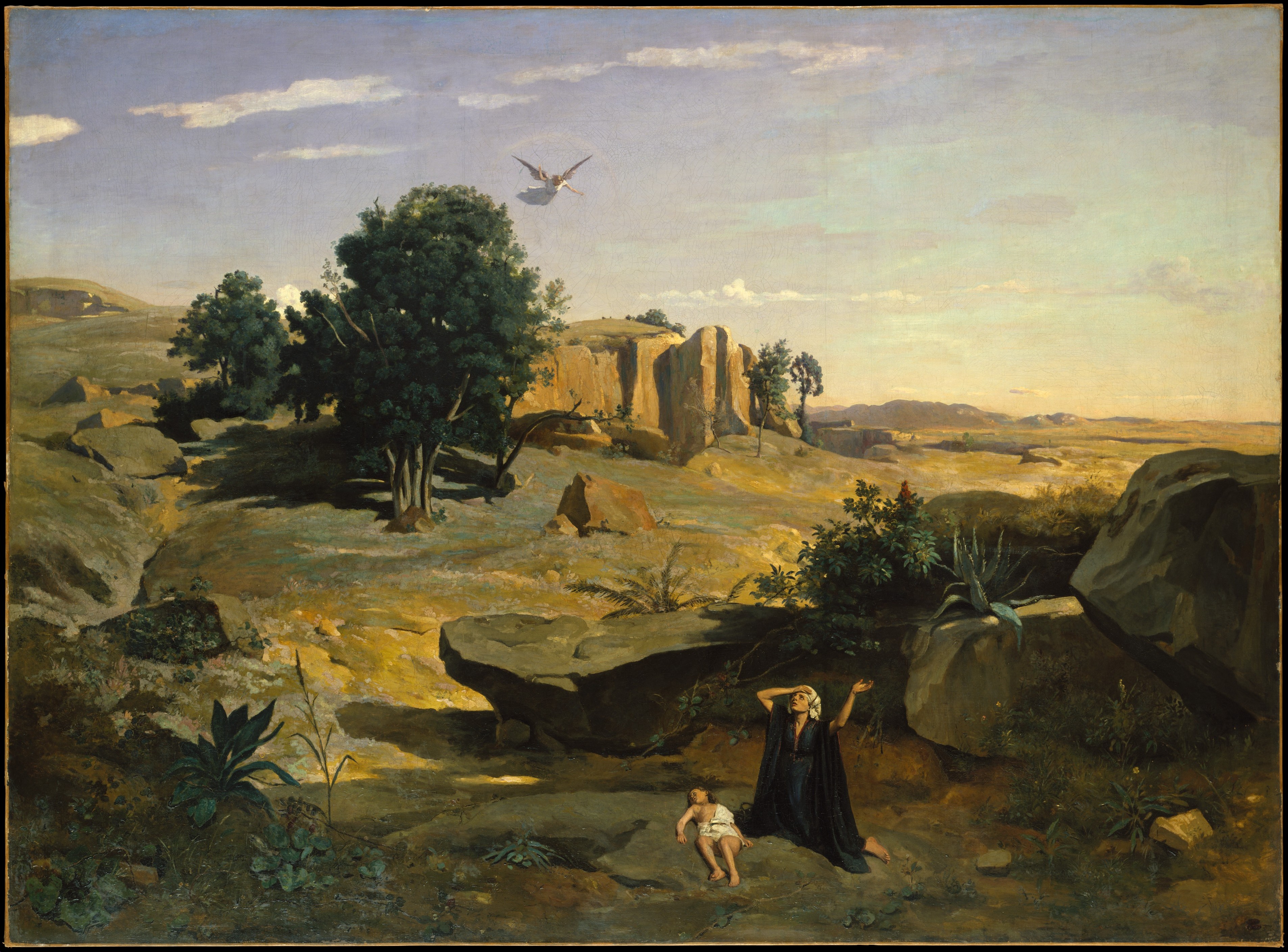It started the day before our house blessing party. Eddy and I had moved to a lovely apartment in Glen Ellyn two months before, and we had been looking forward to finally breaking our home in with friendship and prayer and food. I had been scrambling all week to put some finishing touches on our walls: quotes and pictures that are meaningful to me, a shower curtain that wasn’t disgusting. And my painting of the Christ of Divine Mercy.
I’ve been working on this painting since last January. It’s been a prayerful process, and although I’ve never tried to paint on canvas before, I’ve been surprised by the beauty and power of the image. I believe that it has been a gift from God. But on this day before our house blessing, it wasn’t quite finished, and I was desperately forcing it to be. It was as if I would seize this gift for myself like the forbidden fruit of the tree—before God’s good timing—so that I could be my own god. And I heard God say, “Don’t hang the painting.” I finished a few strokes and let it dry and then hid it away in the closet. I understood why, I thought; I was too proud. But I didn’t fully understand yet. That painting was only one precious piece of a mosaic I had been crudely fashioning for my own self-glorification—a mosaic that God was about to shatter (and begin to reassemble).
The next morning, Eddy and my brother and I went to church, and I was cut to the heart by the sermon. “You can’t serve God and mammon,” Jesus said. Father Stewart explained that mammon is a worldview of acquiring for our own security, opposed to the posture of receiving life and all our needs from God. Because life is so fragile, so uncertain, we all place our faith in something for a sense of security. Father Stewart rattled off examples of the things we tend to grasp at for our own security. What took me by surprise was this: “Beauty,” he said. “I don’t simply mean being good looking or acquiring someone who is good looking. I mean it more deeply. You have a deep need for beauty. You’re trying to acquire that beauty, perhaps through a home or an apartment, through a particular way of living, through food. You’re trying to acquire beauty. You want beauty.” I saw myself precisely as in a mirror and I grew weak inside.
Father Stewart described life under the mammon faith-system—my life. “In the mammon faith-system,” he said, “your goal is to acquire, secure, on your own. You have to become good at acquiring, because—here’s the deal—everyone in the mammon faith system is trying to acquire too. . . . If you’re doing well, you’re able to develop constant and regular high praise from those around you. You have to have that in the mammon system, because when you’re living by performance and acquiring, you’re never quite sure if you’ve done enough; you never have much sense of where you are in the system. You build your life on praise received. Criticism is an utter crisis in the mammon system.”
I was headed into a crisis. We went back home and finished preparing for the house blessing party. I watched myself grasp at security through artful food and drink and a home that was beauty-full with the presence of God. I saw that I actually wanted to use the presence of God in my home as a means for my own sense of glory and transcendence. It was devastating.
And then, so few friends actually showed up. It hurt, oh it hurt, not just because I felt forgotten, but because I depended on the presence and praise of others to validate my self-glorification project. And I was so busy mentally processing everything that had happened that in the end I wasn’t present with anyone there. Although I was thankful for the prayers of our friends, my heart was not in the house blessing anymore. It was a human home, and the food turned out to be just human food; no one bowed down and worshiped me for it. I knew that God meant to show me all this about myself, but I was laid bare, and later, I was angry. Why now, God? Didn’t you want our house to be blessed?
My anger spilled over onto Eddy that week and I sunk into a kind of depression. What began my redemption, though I still ached, was spending Thanksgiving with friends who love us. I needed to humbly receive hospitality and to see what a humble offer of welcome looks like. On Sunday at church Matt Woodley’s sermon enabled me to imagine myself like a disciple who had run away and could now share a breakfast of fish on the beach with Jesus. I knew that though I had betrayed God, God was not finished with me yet, and it gave me hope. One day that week I shared hot cocoa and making paper snowflakes with my coworkers; it was cheering. I needed to create something simple and humble with my hands and to feel part of everyday friendships again. I knew that all of this was from God, and it started healing me again.
On Saturday, I told my story to a friend, and she asked good questions. It was a confession before God, and it was something good. I was truly grieved and ready to repent, but I was stuck on how I could learn again to desire God for God’s sake and not for some other selfish end.
The next morning, I went to church in the stupor of a cold, and I was too tired to pay attention. When it was time to receive the Eucharist, I zombied through it. My body remembered to cup my hands in a posture of receiving, and my mouth remembered to say “amen,” but I was not very conscious of what I was doing. When I returned to my seat, I noticed that something had changed inside of me. I realized that I felt Jesus there, embracing me. I have never felt anything better than being with him. I was exultant. The joyous love of God was bubbling up inside of me, and I was so happy, because Jesus is so good. Oh my Lord Jesus, he is so good. And that’s how I knew I could desire God again for God’s sake—as a gift to be received.
And, with thanks to God, this is not the end of the story of our home. Now, more than ever, I am confident that God greatly desires to fill our home and our hearts with the gift of God’s presence. Perhaps not climactically, but in small, humble, human ways, through friendship, shared meals and prayers, and when the time comes, a painting of our beloved Christ.




